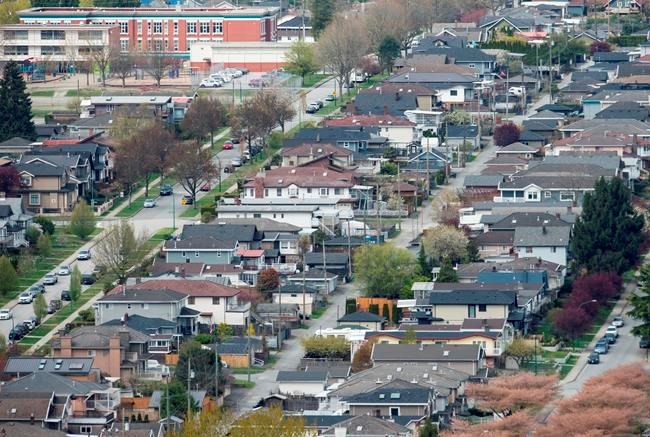The new “cockamamie” program to help first-time home buyers won’t deliver the kind of benefits that would have resulted from loosening restrictions of the federal mortgage stress test, says the chief economist for the B.C. Real Estate Association.
“This program looks a lot like a horse devised by committee,” Cameron Muir said Monday.
“It seems very cumbersome, complicated and now government is participating in the equity gain or loss in your home.”
The federal government could instead relax the “toughest mortgage qualification in modern history in Canada,” he said. “That would accomplish much more than this cockamamie scheme for the government to have their fingers in your equity of your home.”
Announced Monday, the new program will come into effect on Labour Day, just weeks before the Oct. 20 federal election.
The $1.25-billion plan will see the government take an equity stake in thousands of homes to ease mortgage costs for qualified buyers. Program rules would allow previous homeowners to qualify under certain conditions, permit the purchase of a building with up to four units, and help with a maximum purchase price of $565,000, based on government calculations.
The first-come, first-serve program will see federal funds pick up five per cent of a mortgage on existing homes for households that earn under $120,000 a year, on a mortgage of no more than $480,000. The value increases to up to 10 per cent for new homes to spur construction and expand supply to avoid heating housing prices.
There isn’t any interest on the money, but a buyer would have to repay it in full when they sell their house or after 25 years of living in the home. An early repayment carries no penalties.
If the value of the home goes up, so too does the amount of money owed to federal coffers. The opposite will be the case if the value of a home goes down.
Muir said it is not necessary for the government to take equity in citizens’ homes when it could ease its stress test rules.
He predicts that the program will not attract a large number of participants and therefore will not accomplish its goal.
“Relaxing mortgage qualifications would be much more simpler, people would understand that and the market would respond immediately to that.”
But if the government did that, it would be admitting its tough mortgage rules introduced last year have not been successful, Muir said.
Victoria mortgage broker Maria Dominelli has not seen interest in the program.
People who are that short of cash really need to either save up or they have someone else who is going to help co-sign, or get the family to help.”
She does not think the program will assist the first-time segment of the market.
“I don’t see it here in our city ... it may have an impact in the rural areas where the cost of housing isn’t so high, where you don’t need as much money down.”
The capital region has some of the highest prices in Canada. The benchmark price for a single family house in the core in May was $860,800, which is high for many first-time buyers. May’s benchmark price for a condo was more affordable at $519,300.
Tsur Somerville, associate professor in the Sauder School of Business at the University of British Columbia, said that a similar shared-equity program in the U.K. doesn’t seem to have increased the number of people buying houses, but it made it easier for those who are doing so.
“The uptake in the U.K. wasn’t particularly great, but I think from the government’s perspective if there is concern about who the stress test is hurting and making it difficult on, certainly first-time buyers would be the group you would be most concerned about as opposed to helping somebody move from one house to a bigger house.
“If you don’t want to change the stress test because you are concerned about overall levels of household indebtedness, which is what we should be concerned about, then a program that is targeted at first-time buyers, even if it doesn’t change the number of first time buyers and makes it easier on those who are, can still something that is positive.”
Those who do not get funds from family will likely start out in a townhouse or a condo, rather than a single-family house under this program he said.
In B.C., there has “got to be people where the loan that they can qualify for doesn’t match up with prices given how much they’ve saved and it will help them meet that gap.
“There are always some people who are going to benefit from it.”
— With files from The Canadian Press



